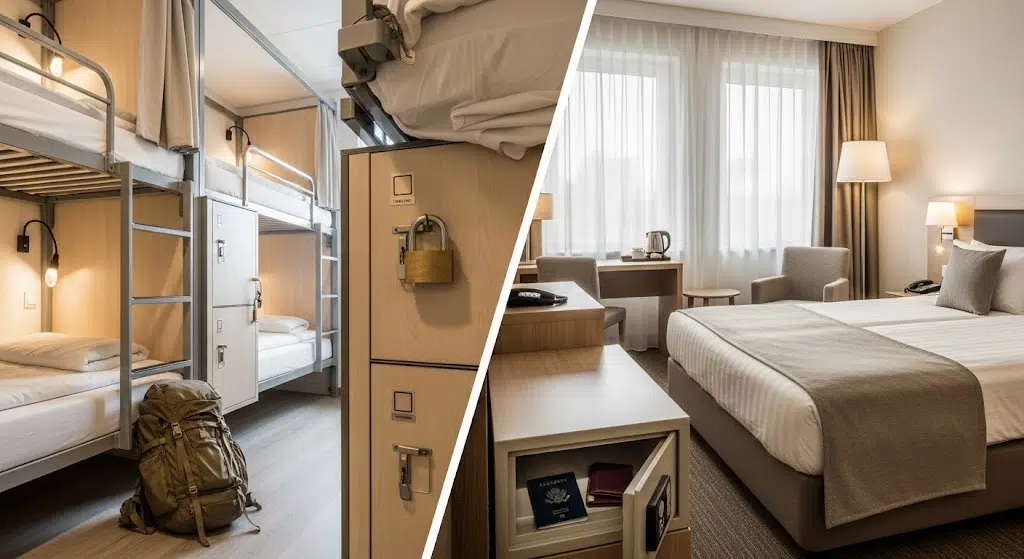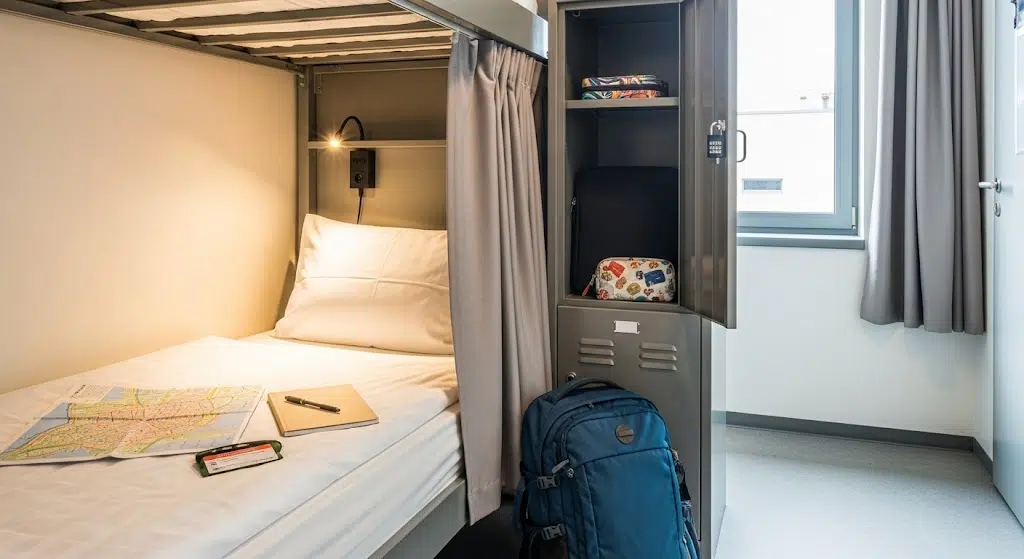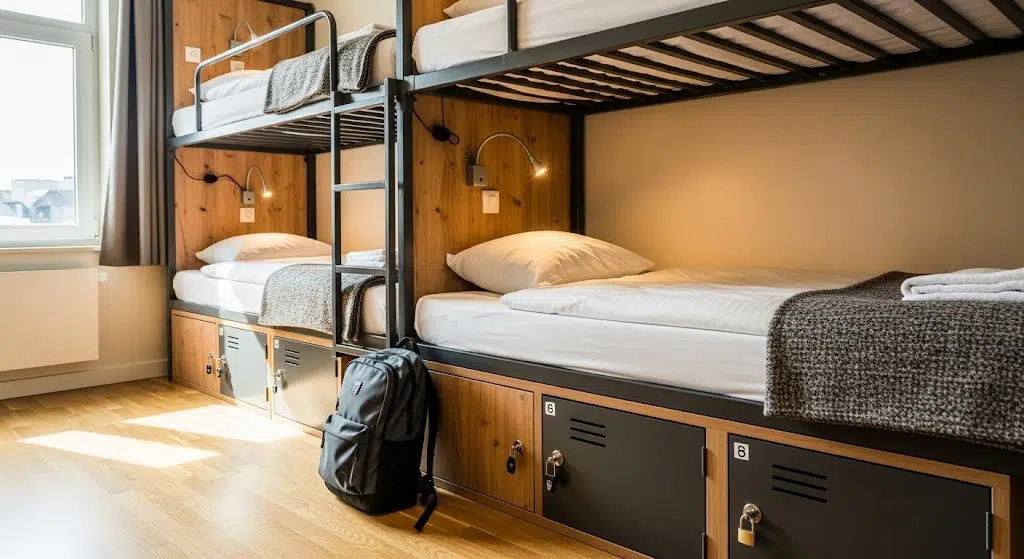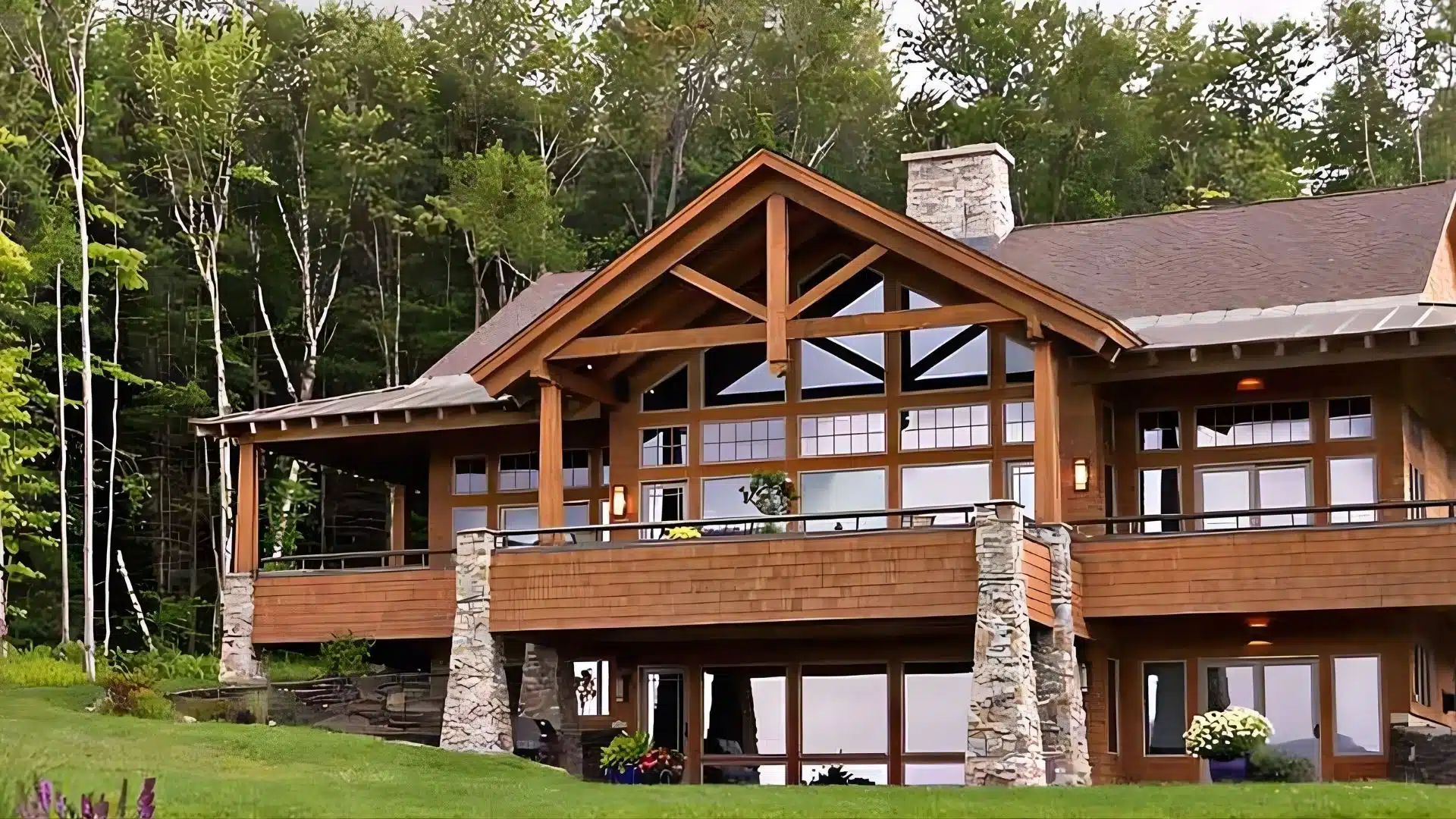Are hostels dangerous? Most people think hostels are risky places filled with sketchy characters and unsafe conditions.
This belief comes from outdated stereotypes and horror stories that spread much faster than positive experiences on social media.
The reality about hostel safety is far more balanced than these scary tales suggest.
Yes, hostels have certain risks that differ from hotels, but they also provide unique safety benefits that budget travelers can use to their advantage.
Smart preparation and basic safety practices help millions of travelers stay secure in hostels every year.
Learning the real risks and safety measures available in modern hostels helps you decide if this accommodation type works for your travel needs and personal comfort preferences.
Are Hostels Really as Risky as People Think?
Many travelers avoid hostels due to the scary stories they’ve heard online.
Social media posts about theft, harassment, and unsafe conditions make people wonder if hostels are dangerous places to stay. But these stories only tell part of the truth.
The reality is more balanced than most people realize.
Yes, hostels have different risks than hotels. But they also have safety advantages that many travelers never consider. The key is learning how to tell safe hostels from risky ones.
Why do hostels get a bad reputation?
- Horror stories spread faster than good experiences online
- Movies portray hostels as dangerous places
- Budget prices suggest poor safety standards
- Millions actually stay safely in hostels every year
- Many have better security than budget hotels
Common Hostel Safety Problems
While hostels aren’t as dangerous as some people believe, they do have specific risks that travelers should understand. Being aware of these real concerns helps you prepare properly and stay safe during your stay.
1. Petty Theft and Unsecured Belongings
This is the most common problem in hostels. Items left on beds or in open luggage can disappear quickly. Phones, laptops, and cash are popular targets, especially in party hostels with heavy drinking.
Most theft happens when guests leave valuables unattended in dorm rooms, common areas, or bathrooms.
The risk increases during peak travel seasons when hostels are crowded and staff cannot monitor every area constantly.
2. Limited Privacy in Shared Spaces
Shared rooms mean you cannot control who enters your sleeping area. Some guests may have poor hygiene habits or different sleep schedules.
Mixed-gender dorms can make some travelers uncomfortable, particularly when changing clothes or sleeping. Personal conversations become difficult with strangers nearby.
Bathrooms and showers are shared among many guests, creating potential waiting times and less cleanliness control.
3. Roommate Conflicts and Compatibility Issues
Living with strangers creates potential for personality clashes and cultural misunderstandings.
Some guests may be inconsiderate about noise, cleanliness, or personal space boundaries. Age differences often cause problems when young party travelers share rooms with mature professionals seeking rest.
Introverted travelers may feel overwhelmed by constant social interaction and pressure to participate in group activities.
4. Unsafe Neighborhood Locations
Some hostels operate in high-crime areas to keep costs low. Poor street lighting and limited police presence increase risks when walking at night.
Late-night walks to public transport can be dangerous, especially for solo travelers. Tourist-heavy districts may have more pickpockets and scam artists targeting hostel guests.
Transportation access matters significantly – hostels far from train stations require longer walks through unfamiliar areas.
5. Hygiene and Cleanliness Concerns
Shared bathrooms and kitchens spread germs faster than private facilities.
Kitchen areas may harbor bacteria if guests don’t clean up properly after cooking. Bedding cleanliness varies greatly between properties and management quality – some hostels change sheets infrequently.
Pest problems like bed bugs, cockroaches, and rodents occur more often in budget accommodations and can spread quickly through shared spaces.
Are Hostels in Europe Safe?
European hostels generally maintain higher safety standards than other regions due to strong regulations and consumer protection laws.
Most properties feature electronic keycard access, 24-hour staffed reception, security cameras, and individual bed lockers. Staff typically receive training in emergency response procedures.
However, travelers should watch for specific challenges.
Tourist-heavy cities like Paris, Rome, and Amsterdam have higher pickpocket activity around hostels near famous attractions.
Party hostels create different risk profiles with intoxicated guests and noise issues. Summer tourism creates overcrowding that can temporarily compromise safety standards.
For safer stays, book well-reviewed hostels in advance and read recent reviews from the past three months.
Always use official licensed transportation rather than unofficial services that may overcharge or take unsafe routes.
Hostel vs Hotel Safety

The question isn’t simply which accommodation type is safer overall. Both hostels and hotels have different safety advantages and risks.
Your choice should depend on what specific safety concerns matter most to you as a traveler.
| Safety Factor | Hostels | Hotels |
|---|---|---|
| Petty Theft | Higher risk in shared spaces, but lockers are provided | Lower risk with private rooms and room safes |
| Personal Safety | More witnesses in shared areas deter crime | Privacy can enable or prevent harassment |
| Privacy | Very limited in shared dorms | Complete privacy in private rooms |
| Staff Presence | Often 24-hour reception with active monitoring | Reception hours vary, less personal attention |
| Fire Safety | Must meet local codes, complex layouts | Better evacuation systems, clearer exits |
| Hygiene | Depends on guest cooperation, shared facilities | Professional cleaning, private bathrooms |
| Security Features | Keycards, lockers, CCTV common | Room safes, controlled access standard |
| Social Safety | Group accountability, other travelers help | Isolated incidents are harder to witness |
Neither option is universally safer than the other.
Hotels offer more privacy and professional standards, while hostels provide social accountability and constant staff presence. Your personal travel style and specific safety priorities should guide your accommodation choice.
How to Choose and Stay in Safe Hostels?
Staying safe in hostels requires smart choices both before booking and during your stay. These practical steps help minimize risks and ensure a secure experience.
When choosing a hostel:
- Read recent reviews for mentions of theft or safety problems
- Verify security features like lockers, keycards, and 24-hour staff
- Research the neighborhood safety and public transport access
- Book through reputable platforms that screen properties
During your stay:
- Use lockers for all valuables every time you leave the room
- Arrive during daylight hours when possible
- Be aware of your surroundings and trust your instincts about people
- Set personal boundaries politely in shared spaces
- Limit alcohol consumption in social settings to maintain good judgment
Hostel Safety for Solo Travelers

Solo travelers face unique safety challenges in hostels, but also enjoy specific advantages. Understanding these considerations helps you prepare better and stay safer during your solo hostel experience.
1. Trust Your Instincts Immediately
Uncomfortable feelings about people or situations often signal real problems before they escalate.
If something feels wrong, remove yourself from the situation quickly. Don’t worry about seeming rude – your safety comes first. Solo travelers must rely on their own judgment without input from travel companions.
2. Stay Connected with People Back Home
Inform someone of your travel plans and check in regularly with friends or family. Share your hostel address and contact information with trusted people.
Set up regular check-in schedules, especially when moving between locations. This creates a safety net if problems arise.
3. Choose Your Room Type Carefully
Consider female-only or male-only dorms if available, and you feel more comfortable. Mixed dorms can actually be safer in some situations due to social dynamics.
Private rooms offer complete control but reduce opportunities to meet other travelers. Match your choice to your comfort level and safety priorities.
4. Don’t Display Wealth or Expensive Items
Keep expensive electronics, jewelry, and large amounts of cash hidden from view.
Solo travelers are often seen as easier targets for theft. Use hostel lockers religiously and never leave valuables unattended, even for short periods.
5. Build Connections with Other Travelers
Meeting other guests creates informal safety networks and companionship. Join group activities, share meals in common areas, and participate in hostel social events.
Other solo travelers often share practical safety tips and local knowledge freely. Having travel buddies, even temporarily, increases your safety significantly.
What to Do When Hostels Aren’t Safe?
When safety issues occur in hostels, quick and proper responses can prevent situations from getting worse. Here’s what you should do when problems happen during your stay.
- Document incidents with photos, times, and witness information before reporting to staff
- Speak to the highest-ranking staff member available and request written acknowledgment of your complaint
- Ask for room changes immediately when safety concerns arise, with specific explanations
- Call emergency services immediately for serious crimes or medical emergencies
- Report thefts to police, even if recovery seems unlikely – you need reports for insurance claims
- Contact your embassy or consulate for serious problems involving criminal activity
- Notify travel insurance companies within the required time limits and document all expenses with photos and receipts
Are Hostels Safe? Common Traveler Concerns
Source: Reddit
Travelers share mixed experiences about hostel safety and comfort. These honest accounts show both the challenges and benefits of hostel stays across different age groups and travel styles.
Common reasons travelers avoid hostels:
- Many feel too old for hostels by their early thirties, when they have more disposable income and less time to travel, preferring comfortable accommodations over savings
- Hostels fill mostly with people in their early twenties on their first overseas trips, making seasoned travelers and professionals feel disconnected from the typical hostel crowd
- Constant noise and interruptions make it difficult to enjoy activities like hiking or sightseeing when fighting sleep deprivation and headaches from poor rest
- Incidents like strangers touching sleeping guests to apologize for the noise highlight how vulnerable people feel sleeping in rooms full of strangers
- Drunk guests entering and leaving rooms all night prevent proper sleep before early tours or activities, especially problematic for travelers who outgrow the party scene
These experiences show that hostel safety includes sleep quality, personal boundaries, and mental well-being that affect your ability to travel safely and enjoyably.
Final Thoughts
Smart hostel selection, basic safety precautions, and situational awareness make all the difference between a positive experience and potential problems.
Most travelers who follow proper safety guidelines find hostels to be secure, social, and cost-effective accommodation options.
The horror stories that make hostels seem dangerous usually involve preventable situations where basic safety rules were ignored.
Your hostel experience will be as safe as you make it through careful planning. Choose well-reviewed properties with good security features, protect your belongings, and trust your instincts about people and situations.
What has your experience been with hostel safety? Share your own hostel stories and safety tips in the comments below to help other travelers make informed decisions.













